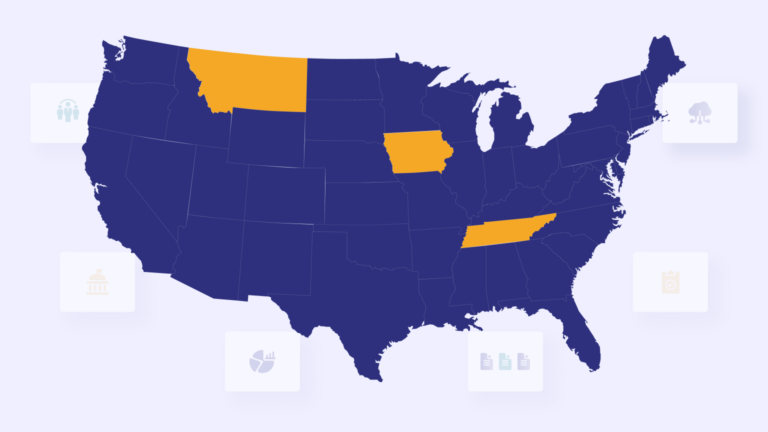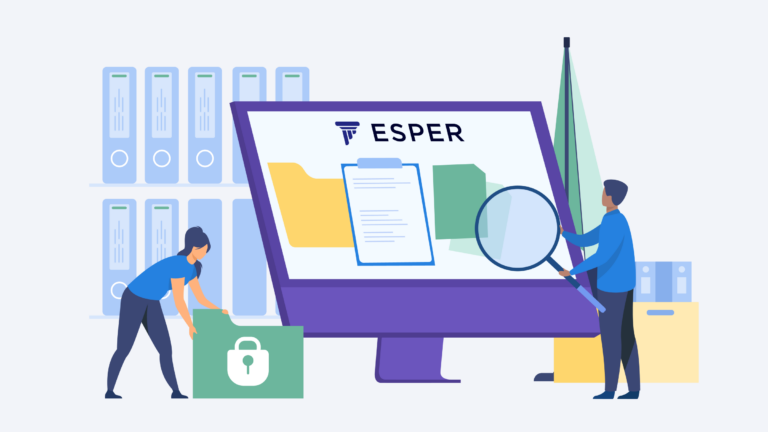
Improving federal rulemaking with technology
New developments in natural language processing, artificial intelligence, and machine learning technologies have allowed the creation of new platforms to uniquely serve the needs of regulatory agencies.
Regulatory Technology in Federal Agencies is Broken
As the scope of federal rulemaking responsibilities has expanded over time, agencies have sought to better organize and manage the rulemaking and guidance processes from initial drafting, to review and clearance, to the public comment process, and to finalization.
Most agencies rely on a mix of homegrown technology and retrofitted third party applications to track, manage, and analyze rulemaking and guidance activity. These systems often arise out of acute needs within agencies and are typically implemented by generic business service providers that lack deep expertise and focus on regulatory processes.
While these systems might accomplish immediate goals, they are not designed to expand beyond their first purpose. Multiple systems lead to data silos, redundant work, and mismanagement across systems. This results in costly delays, increase in service expenses, and a series of fragmented technology systems that hamper agency effectiveness due to low adoption and applicable uses.
Fragmented, dated technology results in operational inefficiencies such as:
- Information silos within and across organizations;
- Limited operational visibility among internal stakeholders;
- Delayed federal rulemaking processes that cost agencies labor and time; and
- Unnecessarily complex regulatory features that raise compliance and legal questions for the public.
How Purpose-Built Rulemaking Technology Improves Rulemaking
New developments in natural language processing (NLP), artificial intelligence (AI), and machine learning (ML) technologies have allowed the creation of new platforms to uniquely serve the needs of specific government agencies.
Esper is a regulatory technology company pioneering a new platform to manage the end-to-end rulemaking processes in government agencies. Esper’s innovative technology combines the latest developments in natural language processing (NLP), artificial intelligence (AI), and machine learning (ML) to deliver world-class technology to government regulators.
Rather than string together a series of technologies to analyze regulations, track internal work, and provide a clean reporting structure, governments leverage Esper for easy management of all regulatory activity.
Leveraging Regulatory Technology in Government
- Robust regulatory and legal ontology: Esper’s technology ingests, parses, and organizes regulation and legislation across the state and federal government to map policy relationships within and across jurisdictions. This one-of-a-kind searchable database results in a clear map of how regulations and laws across the United States are related for ease of research.
- Industry insight analysis: Esper tags regulations with North American Industry Classification System (NAICS) codes and cross references those codes with employment, establishment, and wage data from the Bureau of Labor and Statistics. This unique analysis gives regulators quantifiable data on the impact of regulation on specific industries.
- Quantification of regulation: Esper integrates and analyzes the text of regulations and guidance documents to identify outdated legal references and cross references, financial mentions, application requirements, restrictiveness, character count, and to map overall complexity.
- Regulatory comparisons: Esper’s algorithms find similar regulations and guidance and other policies across federal and state jurisdictions and give regulators the ability to quickly compare policies and highlight key differences in requirements.
- Automatic formatting: Esper provides regulators with custom formatting and templates to draft regulations in required format, auto-suggest legal citations, and XRRL format.
- Streamlined workflow and reporting: Esper’s platform supports all aspects of the rulemaking workflow including impact statements, code revisions, collaborative reviews, public comment analysis, and any other custom components of an agency’s regular process.


